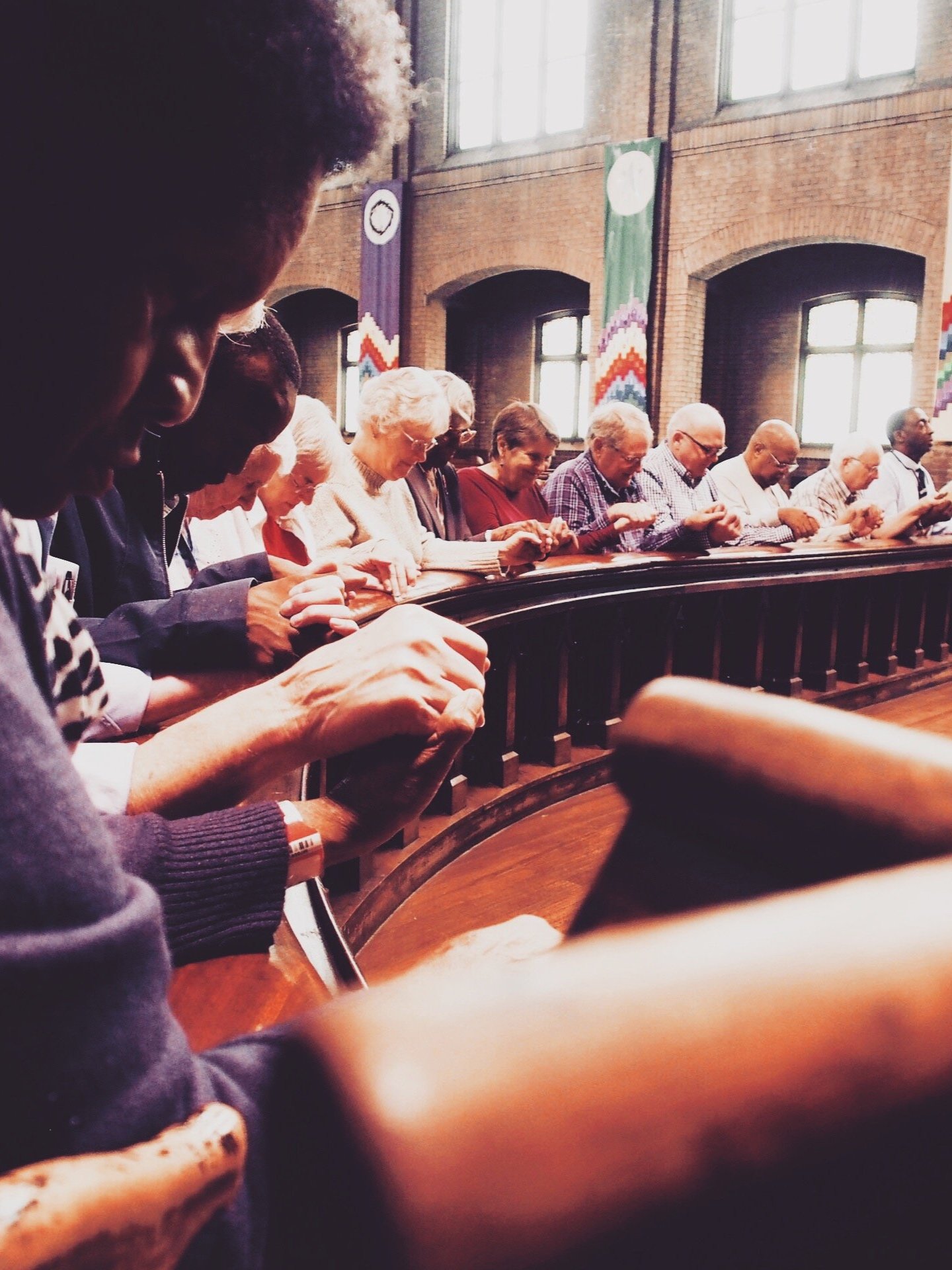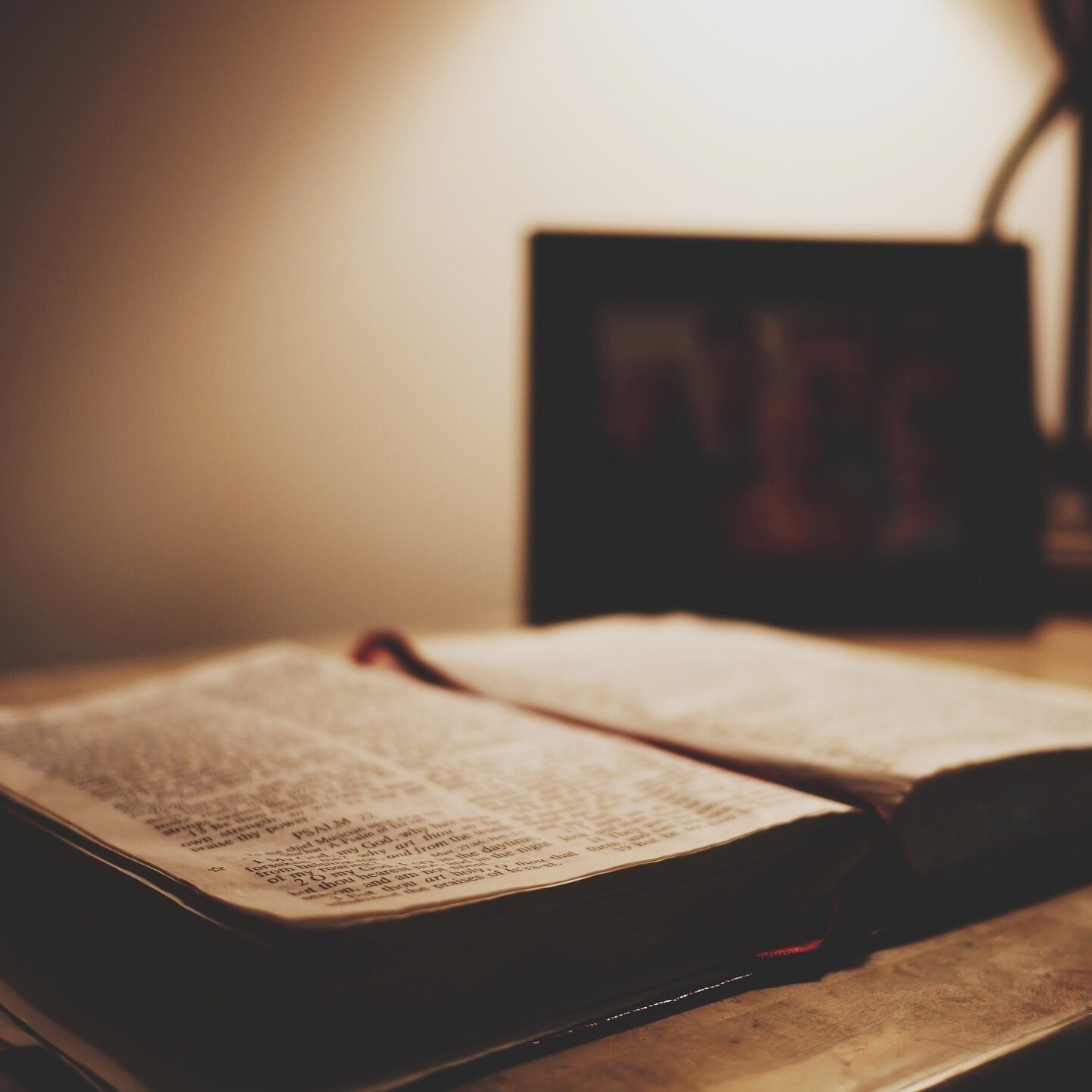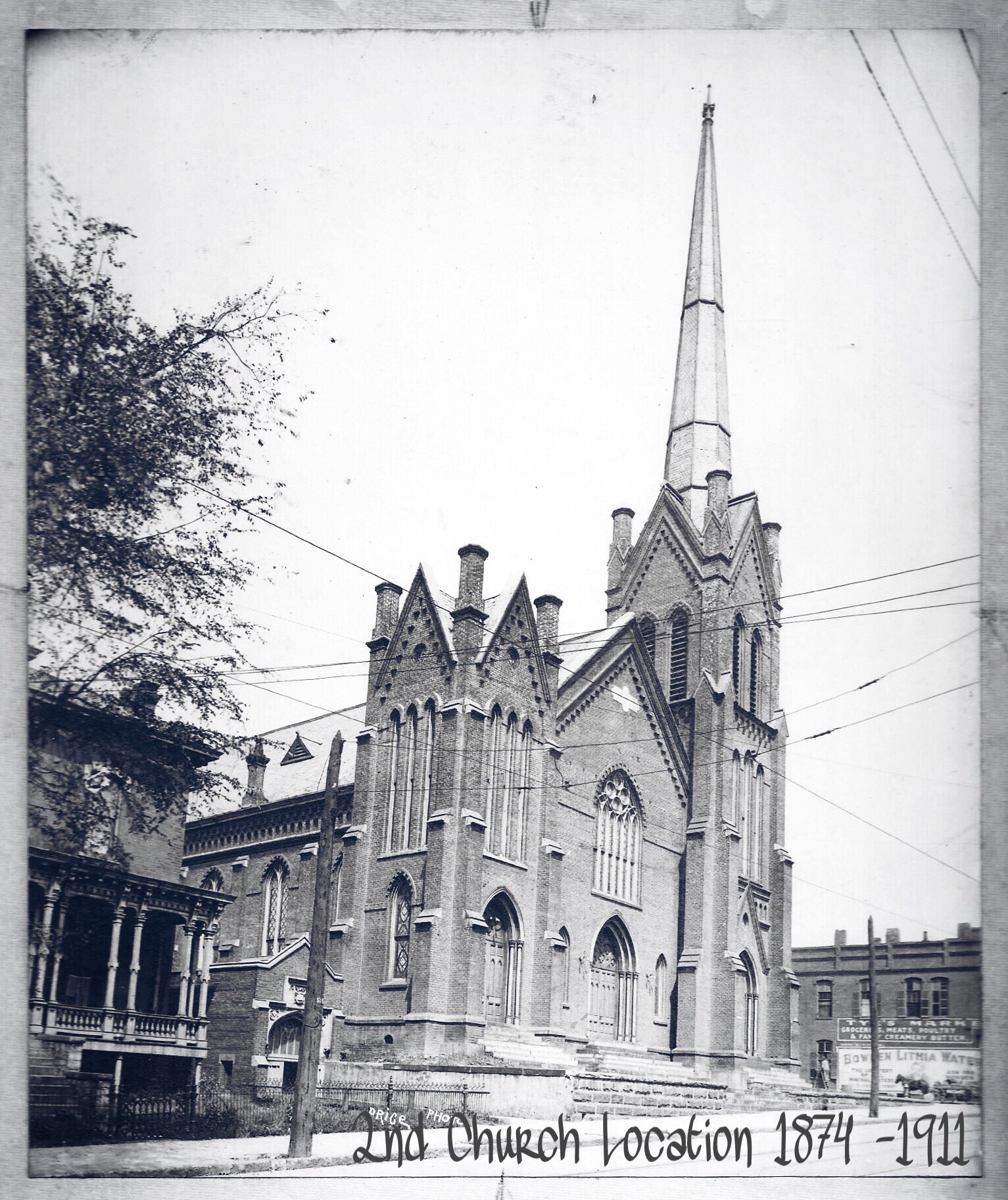
Trinity Reborn




Find more information about our rebirth & redevelopment HERE.
Welcome
We are so glad you are here. Trinity is an inclusive, progressive community that tries to love God and neighbor. Sometimes we’re really good at it. Sometimes we’re not. But being faithful is messy and never easy.
If you want to join a group of folks who are real about the challenges, the messiness, and the beauty of following Jesus, come see us. We would love to get to know you. There’s a place here for everyone!
Ongoing Events
Sunday School
Tues. @11:30am via zoom
Our Sunday school class is studying The Luminous Web by Barbara Brown Taylor. If you would like to attend, please send us an email and we will send you the zoom link as well as where you can get the book.
Bible Study
Friday @12:30pm via zoom
If you would like to participate in our weekly bible study, please reach out to Pastor Deborah. She can send you a Zoom link so that you can participate. Currently we are studying the book of Hebrews. We’d love to have you!
Staff and leaders
Reverend Deborah Williams Haag
Deborah grew up in Marietta, Georgia. Her father is an elder in the United Methodist Church and her mother served as the director of Must Ministries in Smyrna, Georgia. After graduating from Candler School of Theology she moved into full-time ministry. Deborah has worked for the United Methodist Church for over 16 years as a youth minister and pastor. Her heart is found in seeing Christ in others and building relationships.
She is married to Jaye and has a son and stepson. While being in ministry and chasing after a 6 year old keeps her pretty busy she is thrilled to serve with the people of Trinity UMC.
Bruce Wynn - minister of music
Trinity United Methodist Church History
Origins
At its founding in 1853 Trinity was part of The Methodist Episcopal Church, South. In 1939 The Methodist Episcopal Church, The Methodist Episcopal Church, South, and The Methodist Protestant Church united to form The Methodist Church. In 1968, The Methodist Church and The Evangelical United Brethren Church united to form The United Methodist Church.
Through the efforts of Wesley Chapel, now First United Methodist Church (360 Peachtree St. NE, Atlanta), Trinity Methodist Church began in the home of Martha and Greene B. Haygood, on McDonough Street, now Capitol Avenue. A year later, in 1854, the church moved into a new building--the first brick church in Atlanta--built on Mitchell Street on the site where the Department of Transportation stands today, immediately south of the present Georgia State Capitol. Wesley Chapel and Trinity shared pastors until 1856. Methodism was less than 100 years old, and Atlanta's population was about 6,000.
CIVIL WAR
During the Civil War, in July 1864, as Union General William Tecumseh Sherman's army approached the city, Trinity Methodist Church was closed and the Reverend Atticus G. Haygood and his family fled the city. Son of Martha and Greene Haygood, and later a Methodist bishop and president of Emory University (1875-84), Atticus Haygood was a missionary in Confederate General Joseph E. Johnston's army. During August 1864, he held services twice each Sunday. As the city was evacuated in September, furniture from refugees' homes was stored in the church. Through the intervention of Father Thomas O'Reilly, pastor of Immaculate Conception Catholic Church (48 Martin Luther King Drive SW, Atlanta), General Sherman spared four churches, including Trinity.
Trinity's Second Sanctuary
In 1874, the church moved to a larger, more impressive building on the corner of Whitehall and Peters Streets (which is now Trinity Avenue). The church remained at that site until 1911, when they built the present structure on the southwest corner of Washington Street and Trinity Avenue.
Trinity's Third and Current Sanctuary
The only ornamentation on this Gothic structure, designed by Walter T. Downing, a prominent architect of the day, is a lofty tower projecting from the northwest corner of the building. The "triumph of the whole construction," according to The Atlanta Journal (October 27, 1912), are its stained glass windows, made of opaque glass. The north windows depict themes from the Old Testament; the south windows show themes from the New Testament. The center windows on the east side of the church contain symbols of the Christian Trinity; windows on either side show figures representing the formation of the church (the Apostle Paul and St. John Chrysostom on the left, Martin Luther and John Wesley on the right). The elaborately carved chancel and pews, which originally came from Germany, came from the Whitehall Street building.
Mission Work
Trinity is credited with planting the seeds for five Methodist churches in the Atlanta area: in 1871 St. Paul (originally on Fair St.) and Evans Chapel on Stonewall St. (which became Walker Street Church), in 1878 Asbury on Davis St., in 1879-81 Pierce Chapel (which became St. John's at Georgia Ave. and Pryor St.), and in 1882-85 Park Street in West End. In the 1880s and 1890s, Trinity sent at least five missionaries overseas and was active in Home Missions. The Methodist "Epworth League," predecessor of the "Wesley Fellowship," had its start in 1889 in Trinity's "Young People's Christian League." During World War I, Trinity supported two Red Cross units. On the Trinity church's 75th anniversary in 1929, The Atlanta Journal wrote the following words of tribute to the church:
. . . with the rising fortunes of the new Atlanta came an even profounder test. Prosperity flowed, and pride set high in the hearts of men [and women]. But Trinity held true to its olden ideal. "Whosoever will be chief among you, let him [or her] be your servant."
During the 1930s, Trinity operated a soup kitchen, staffed chiefly by the women of the church, serving the city at a time when people stood in long food lines all across this country.
In the 1950s, the building of freeways displaced residential housing on Capitol Avenue, Washington Street, and surrounding neighborhoods. Responding to changes in its environs, which now consists of government offices and public housing, Trinity sought to minister to the growing homeless population in Atlanta. In the 1960s, this ministry focused on the needs of the Capitol Homes community and others in the downtown area. During the 1970s, 1980s, and on into the 1990s, Trinity continued programs designed to meet the needs of the inner-city:
• a soup kitchen serving 300 homeless people Sunday afternoons,
• a night shelter housing 30 men developed into a program helping men break the cycles of substance abuse, unemployment, homelessness, and poverty,
• a transitional house for homeless men, and
• a Wednesday noon worship service and lunch for downtown workers, shoppers, tourists.
In the 1990s, Trinity expanded its ministries to respond to the needs of HIV/AIDS victims.
Trinity United Methodist Church, strives to be open to diverse expressions of Christian faith, to welcome persons from all religious, racial, and ethnic backgrounds, social and economic stations, and sexual orientations into the life of the congregation, and to offer its ministries to anyone in need.

Reconciling Congregation since 1996
On Sunday, February 11, 1996, Trinity members present at a called church conference adopted the following statement, officially adding Trinity’s name to the list of individuals, churches, conferences and agencies who support “opening the doors” of the UMC to homosexual men and women:
We the congregation of Trinity United Methodist Church in Atlanta, GA, welcome into our fellowship all persons, regardless of their religious, racial, or ethnic background, social or economic station, or sexual orientation. Therefore, we affirm that the reconciliation offered for all creation through Jesus Christ is thereby offered to all, including lesbian, gay, bisexual and transgendered persons. This reconciliation is not based on any condition except the desire to acknowledge Christ as redeemer and to live as life which demonstrates God’s love for all the world. We recognize that God challenges us all to find responsible, committed, and loving forms of relating to one another. We commit ourselves to ongoing prayer, study, and conversation about what this challenge means for all our life and ministry together.
We affirm with the larger United Methodist Church that homosexual persons no less than heterosexual persons are individuals of sacred worth. We accordingly propose that Trinity UMC become an official Reconciling Congregation. We invite other United Methodist congregations to join us in this stand, that those who before have felt abandoned by the church will now feel welcomed into the fellowship of believers.
To acknowledge the diversity of theological interpretation in the United Methodist Church on this matter, we furthermore ask the General Conference to remove the words from the Discipline (par. 402.2) that state the practice of homosexuality is incompatible with Christian teaching and that deny ordination to self-avowed, practicing homosexual persons.
Come join us at Trinity tAble!
Volunteer
—
Donate










